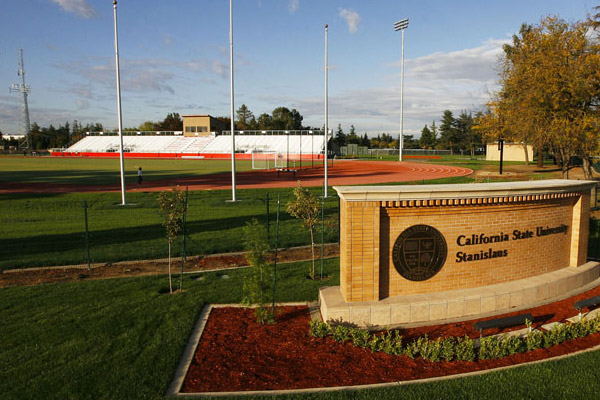
California Christian Fraternity Shut Down for Banning Non-Christian Leaders
- By Alison Lesley --
- 01 Apr 2015 --

A Christian fraternity is in the middle of a religious debate after claiming to have been wrongfully removed by California State University, Stanilaus.
The move comes after the fraternity would not comply with a policy that it felt conflicted with its beliefs. The CSU system says it will no longer recognize the chapter.
The organization involved is a Christian-based fraternity called the Stanilaus Christian Fellowship and it is a member of the Chi Alpha chapter that has more than 300 student group chapters at campuses internationally. Tim Lynch, the associate Vice President of CSUS claims that the organization’s constitution violates a system-wide executive order because it does not allow anyone who is a non-Christian to seek leadership roles within the group.
Lynch asserts that the fraternity cannot be faith-based to the point where an individual must profess their faith in order to be a leader. All clubs are able to establish and set their own standards of how leaders are chosen, as long the method is non-discriminatory. All sororities and fraternities have to comply with all requirements thereof except for the gender exemption.
Matthew Jacob, the Turlock City Councilman believed the fraternity is being targeted unfairly. He feels the fraternity itself is being discriminated against and sent the university’s chancellor a letter claiming the executive order is not being enforced justly. He is also worried that the issue could cause more widespread repercussions.
The fraternity has not been barred from the campus, but can no longer benefit from support services for student clubs like reserving campus rooms for meetings, using campus club mailboxes and receiving Student Leadership and Development Office accounting services.
The fraternity has more than 45 members and had to cancel 15 of its events due to the actions of the university. The organization also claims that being forced into adopting the university policy infringes on its religious freedoms.
At San Diego State, the Chi Alpha chapter has also lost its fraternity recognition for the exact same reason.
If the two can’t come to an agreement, Chi Alpha may be seeking litigation if the two parties cannot reach an agreement.
Over the past decade, there’ve been various cases on college campuses where religious-based fraternities have caused controversy because they have excluded non-religious students and those whose religious beliefs differ from theirs.
There’ve been noteworthy cases where the same initial result has taken place: the un-recognizing of the campus religious community as well as a loss of privileges. However, by the ways of court cases, a lot of these organizations have attempted reestablishment of their groups and with full fraternity rights to define their own membership requirements.
Bowdoin College’s evangelical Christian Fellowship had its recognition revoked as well. This was after one student complained about not being allowed to lead the fraternity because they did not have the same religious beliefs as the fellowship. California State Universities face similar issues. The governing board stated that all of the college clubs have to allow all members or else they lose their recognized status with the university. These are just two of the more prominent cases, but there’re lots of other cases.
More than likely, this policy issue shall evolve over and over into legal issues, especially as more schools pressure the religious organizations into accepting members who do not share their ideals, and the religious organizations begin pushing back for their rights to exclusivity.



















